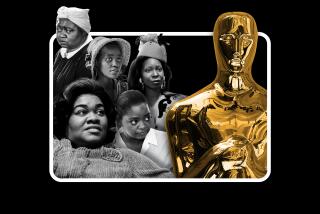A Painful Awakening Set Against the Humor of Small-Town Life
- Share via
Even in August, Mary Culpepper finds Michigan lake water “warm at my ankles, chilly at my knees, freezing at my thighs.” Her life is like that, too: comfortable on the surface but full of icy, unseen currents.
Mary, the narrator of Lisa Reardon’s second novel (following “Billy Dead”), is a “Lone Rangerette,” according to her lifelong friend, Amy Richardson--seemingly content to be single at 34 in the town where she grew up, play first base on a fast-pitch softball team, drive the school bus, tend her cat and her classic ’65 Mercury, pal around with 12-year-old Julianna Coleros, have dinner every Sunday with her mother and sisters, and quiet her loneliness with beer and an occasional affair.
In the beginning, there’s an awkwardness to Mary’s story, and we wonder if it’s Reardon’s fault. There’s tension among the Culpeppers that seems to have no outward cause. People move among them--a man named Carl, for one--whose relationship to the family is unclear. Mary is scheduled to testify at the trial of a mother accused of killing a 6-year-old girl who rode the bus. Mary will truthfully say she saw no signs of abuse. That seems clear enough. So, is the jitteriness we hear in her voice only an artifact of uncertain prose?
No. Reardon knows exactly what she’s doing. Carl’s status is unclear because Mary doesn’t want to dwell on the twin facts that he used to be her husband and that Amy stole him from her. “Worse than their betrayal was the fear that I’d lose them altogether, so I had sealed over any pain or anger,” Mary is capable of saying by the end of the novel, but not before all the substitute comforts she has wrapped around herself are stripped away.
Those Sunday dinners with Mom are edgy because Mary’s father was an alcoholic and a philanderer. He pledged Mary to secrecy and called her his “girlfriend.” Mary’s mother dragged the girl to bars to confront and shame Dad and his floozies.
“Dad had loved me like one more pickup,” Mary comes to realize, “and Mom had loved me like a soldier loves his gun. I had learned it early on: Both men and women will annihilate you without a thought; love means being plundered and left for dead.”
The coming murder trial brings Mary nightmares because it opens the possibility that she has withdrawn so far from life to spare herself additional pain that she failed to notice that the 6-year-old, Jen Colby, was “underfed, hair uncombed, accident prone, extremely shy. And the bruises. . . .”
Mary dives into an affair with a handsome local ballplayer, but this isn’t a refuge for long: He’s Julianna’s father, and their stolen fun threatens what Mary realizes is the only genuine friendship she has--threatens to scar Julianna for life, just as Mary has been scarred.
Like Jane Hamilton’s “A Map of the World” and Sue Miller’s “When I Was Gone”--select company, in which “Blameless” isn’t embarrassed--this is a novel whose “ordinary” protagonist sinks into hitherto undreamed-of depths of guilt and despair. Reardon’s achievement is to balance this with the gusto and humor of small-town life, with characters who seem as real as the folks next to us in a county fair “beer tent” or a Wal-Mart checkout line.
We may wonder where Mary got the education to think in terms of Emily Dickinson poems or Edward Hopper paintings, but once she’s in action--hitting line drives, having a miscarriage, shooting a dog that mauled her cat, reveling in the joy of illicit love that precedes the moral hangover--she’s totally convincing. Nor does Reardon kid us about the price Mary must pay for the self-knowledge that liberates her: It hurts like hell.
More to Read
Sign up for our Book Club newsletter
Get the latest news, events and more from the Los Angeles Times Book Club, and help us get L.A. reading and talking.
You may occasionally receive promotional content from the Los Angeles Times.










